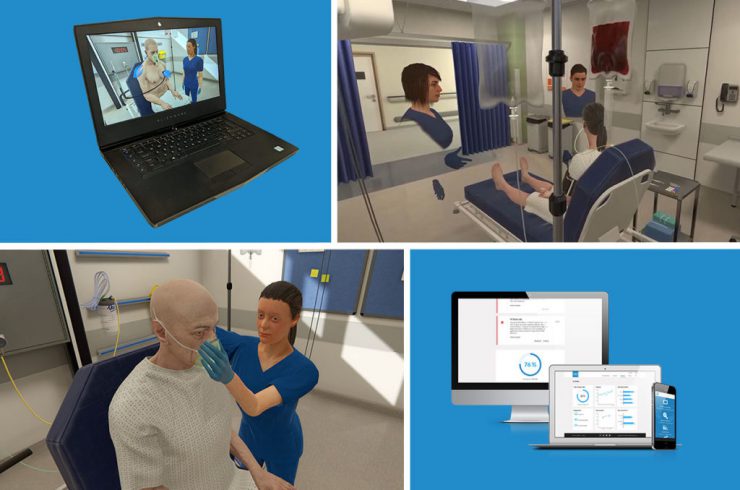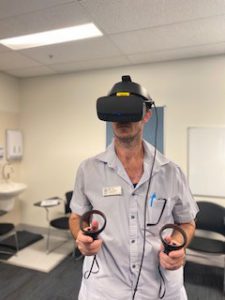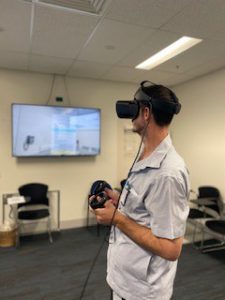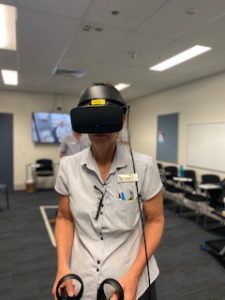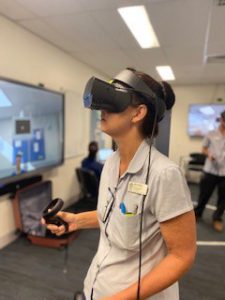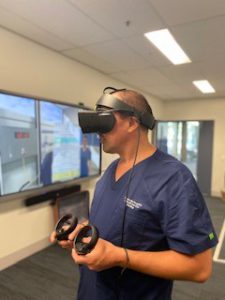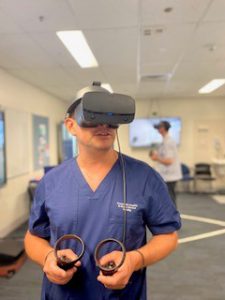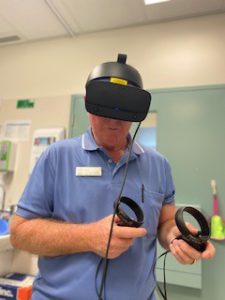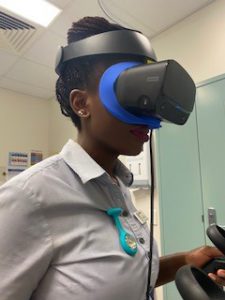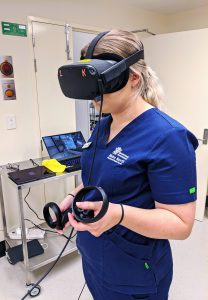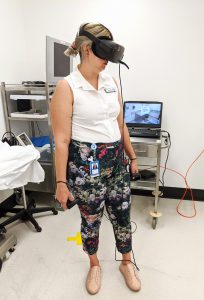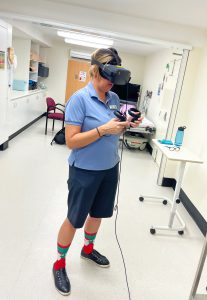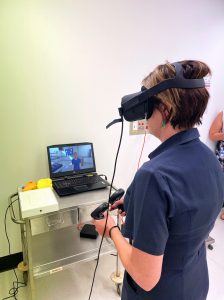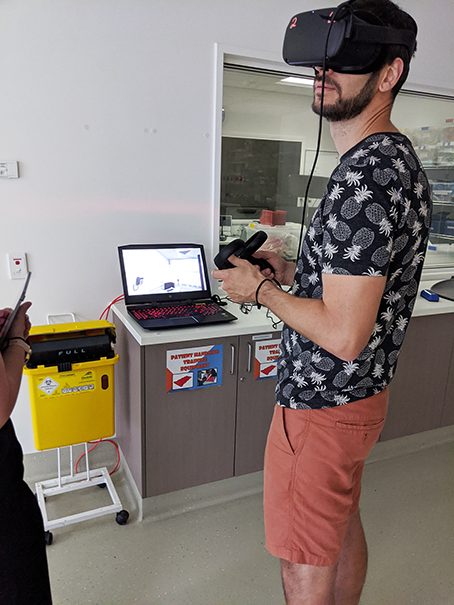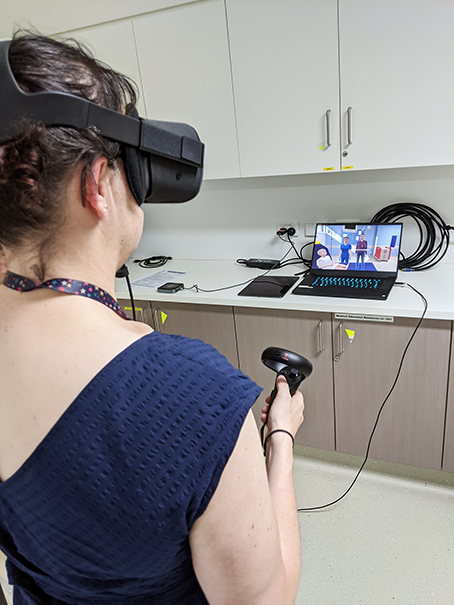How can virtual reality (VR) be integrated into clinical education to boost learning outcomes for clinicians? This is a question we are exploring through a new collaborative trial of virtual reality in clinical education.
A joint endeavour between Townsville Hospital and Health Service (THHS) Education and Research teams, CSDS, and Oxford Medical Simulation (based out of the UK and USA), the trial is over a three-month period across Queensland at rural, remote and metropolitan facilities.
What the trial will involve
The Oxford Medical Simulation (OMS) software is designed to deliver medical scenarios, giving the participants the benefits of traditional simulation in virtual reality. This allows participants to practice more, learn from their mistakes, and improve patient care without endangering a patient.
Using Oculus VR headsets, it immerses the participant into a high-fidelity simulated virtual reality environment. The participant is faced with an acutely unwell patient in life-like clinical scenarios. The environment, patient, and other team members are fully interactive, with conversation and physiology adapting to actions and treatment.
The participant assesses the patient, performs, and interprets investigations, treats the patient, and forms a diagnosis, all while managing their team under pressure. After that the participant then receive personalised feedback, guided by reflection and performance metrics.
The scenarios include pharmaceutical modelling and dynamic physiology that are clinically accurate and provides a realistic experience. The immediate intelligent feedback consolidates knowledge, while gamification encourages repetition to improve performance.
Between CSDS and Townsville there are 300 clinicians across diverse specialties including paediatrics, medical, nursing, and allied health participating in the trial. This is with a view to incorporate this cutting-edge technology into the delivery of education programs. This project will form the foundation for ongoing investigation into innovative education and training delivery methods.
Why are we conducting this trial?
CSDS and THHS are motivated by education-through-innovation. CSDS has been evaluating the use of augmented and virtual reality, and other forms of innovative technology internally for some time. Captivated by the potential for practical use of this developing technology, this collaboration will explore what benefits may exist for the education and training of clinicians.
This opportunity will allow CSDS and THHS to assess the value of incorporating technology into education. Gaining a greater understanding of the software and hardware capabilities. The fundamental purpose of this trial is to evaluate virtual reality as tool to engage learners and support transfer of learning into practice.
Townsville conducted an initial training day for nurses (all first-time users) where they were able to sample and familiarise themselves with the equipment and scenarios. The team is now developing super users to further utilise VR on the wards after completion of the trial.
CSDS is utilising the reach of our Pocket Centre Network to conduct evaluation sessions. Below are nurses from Redcliffe Hospital trialing the OMS software.
On December 11th, CSDS visited the Prince Charles Hospital to give their staff an opportunity to evaluate the virtual reality experience. A number of nurses and doctors came down to the education centre to try it out. This led to some interesting discussions around possible applications of the software and ways it could be improved or tailored. Photos from the day are below.
To find out more about this trial or using the Immersive Learning Lab based at CSDS, please contact CSDS or email THHS at THHS-ClinicalEducationServices@health.qld.gov.au.


